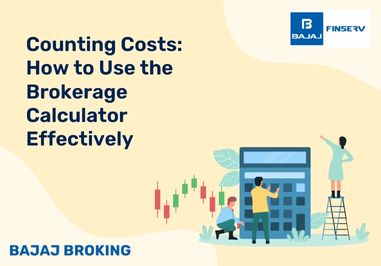What Does the Share Market Mean?
The share market, also known as the stock market, is a platform where buyers and sellers come together to trade equity shares of publicly listed companies. It is a part of the broader financial market and acts as a facilitator for companies seeking to raise capital and investors looking to own a portion of these companies.
There are two primary types of markets within the share market ecosystem — the primary market, where companies issue new shares through initial public offerings (IPOs), and the secondary market, where existing shares are traded between investors. The share market beginner guide helps outline these fundamental structures and provides clarity on the roles of exchanges, brokers, and regulatory bodies that keep the system in check.
How Does the Share Market Function?
The share market operates through a regulated framework involving stock exchanges such as the NSE (National Stock Exchange) and BSE (Bombay Stock Exchange). Companies list their shares on these exchanges to gain access to public capital. Investors, in turn, buy or sell these shares through brokers or online trading platforms.
When a transaction occurs, it is matched via an electronic order-matching system. Price movements are influenced by market dynamics including demand and supply, corporate performance, economic indicators, and investor sentiment. The share market beginner guide sheds light on these interactions, ensuring new investors understand the reasons behind stock price fluctuations and trading volumes.
The stock market refers to the platform where shares of publicly listed companies are bought and sold. In India, major stock exchanges like the BSE and the NSE facilitate trading. Stocks represent ownership in a company, and their prices fluctuate based on various factors such as company performance, market trends, and economic conditions.
Different Types of Stock Markets
The share market is broadly categorised into primary and secondary markets, each serving a distinct purpose. The primary market is where companies issue fresh shares to raise capital directly from investors. This is typically done through Initial Public Offerings (IPOs), allowing companies to become publicly traded entities.
In contrast, the secondary market facilitates the trading of already issued shares among investors. This is where most daily trading activity takes place and is vital for ensuring liquidity in the financial system.
Apart from these, there are also over-the-counter (OTC) markets, which operate outside the formal stock exchanges and deal with unlisted securities. Trades here are carried out directly between two parties.
Additionally, there are equity markets and debt markets. Equity markets are for trading ownership in companies (shares), while debt markets involve the buying and selling of debt instruments like bonds.
Finally, derivatives markets form another segment where futures and options based on stock prices or indices are traded. Understanding all these categories is vital for those consulting a share market beginner guide, as it introduces the full scope of market possibilities.
- Stocks and Shares: Stocks are units of ownership in a company, while shares refer to individual units of stock that investors can buy or sell.
- Stock Exchanges: These are platforms where stocks are listed and traded. In India, the NSE and BSE are the prominent stock exchanges.
- Stock Indices: Indices like the Nifty 50 and Sensex track the performance of a group of stocks, providing an overview of the market's health.
- Bull vs. Bear Market: A bull market represents an upward trend in stock prices accompanied by investor confidence, while a bear market denotes a downward trend in prices and pessimistic sentiment among investors.
- Educate Yourself: Start by learning about stocks, investment strategies, and the market. Numerous online resources, books, and courses are available to help beginners.
- Set Investment Goals: Determine your financial objectives, whether it's wealth accumulation, retirement planning, or other specific goals.
- Create a Budget: Decide how much you're willing to invest. It's crucial to invest only what you can afford to lose.
- Choose the Right Broker: Select a reliable stockbroker or brokerage platform to execute your trades.
- Diversify Your Portfolio: Spread your investments across different sectors and companies to manage risks.
- Monitor and Review: Keep an eye on your investments regularly and stay updated on market trends.
Remember, the stock market involves risks, and prices can be volatile. It's essential to diversify your investments and avoid investing based on emotions or speculation. Patience is key in the stock market, as it's a long-term game that requires discipline and a steady approach.
Additional Read: SEBI Guidelines to Demat Re-lodged Shares
Navigating the stock market as a beginner in India requires a basic understanding of its fundamentals, careful planning, and a patient approach. By learning continuously, setting realistic goals, and diversifying your investments, you can embark on your investment journey with confidence. Start small, stay informed, and remember that successful investing is a gradual process.
Disclaimer: Investments in the securities market are subject to market risk, read all related documents carefully before investing. This content is for educational purposes only. Securities quoted are exemplary and not recommendatory.
For All Disclaimers Click Here: https://bit.ly/3Tcsfuc














